“Whoever wishes to foresee the future must consult the past; for human events ever resemble those of preceding times. This arises from the fact that they are produced by men who ever have been, and ever shall be, animated by the same passions, and thus they necessarily have the same results.”
~Machiavelli
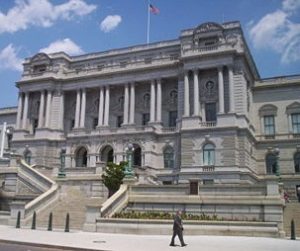
1800 – President John Adams approved legislation to appropriate $5,000 to purchase “such books as may be necessary for the use of Congress,” thus establishing the Library of Congress. The first books, ordered from London, arrived in 1801 and were stored in the U.S. Capitol, the library’s first home. The first library catalog, dated April 1802, listed 964 volumes and nine maps. Twelve years later, the British army invaded the city of Washington and burned the Capitol, including the then 3,000-volume Library of Congress.
Former president Thomas Jefferson, who advocated the expansion of the library during his two terms in office, responded to the loss by selling his personal library, the largest and finest in the country, to Congress to “recommence” the library. In 1851, a second major fire at the library destroyed about two-thirds of its 55,000 volumes, including two-thirds of the Thomas Jefferson library. Congress responded quickly and generously to the disaster, and within a few years a majority of the lost books were replaced.
After the Civil War, the collection was greatly expanded, and by the 20th century the Library of Congress had become the de facto national library of the United States and one of the largest in the world. Today, the collection, housed in three enormous buildings in Washington, contains more than 17 million books, as well as millions of maps, manuscripts, photographs, films, audio and video recordings, prints, and drawings.
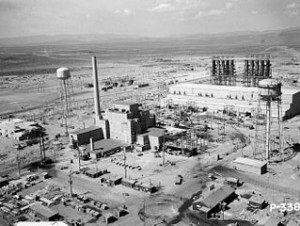
1945 – President Harry Truman learned the full details of the Manhattan Project, in which scientists are attempting to create the first atomic bomb. The information thrust upon Truman a momentous decision: whether or not to use the world’s first weapon of mass destruction.
America’s secret development of the atomic bomb began in 1939 with then-President Franklin Roosevelt’s support. The project was so secret that FDR did not even inform his fourth-term vice president, Truman, that it existed. In fact, when Truman’s 1943 senatorial investigations into war-production expenditures led him to ask questions about a suspicious plant in Minneapolis, which was secretly connected with the Manhattan Project, Truman received a stern phone call from FDR’s secretary of war, Harry Stimson, warning him not to inquire further.
1967 – At a news conference in Washington, Gen. William Westmoreland, senior U.S. commander in South Vietnam, caused controversy by saying that the enemy had “gained support in the United States that gives him hope that he can win politically that which he cannot win militarily.” Though he said that, “Ninety-five percent of the people were behind the United States effort in Vietnam,” he asserted that the American soldiers in Vietnam were “dismayed, and so am I, by recent unpatriotic acts at home.”
This criticism of the antiwar movement was not received well by many in and out of the antiwar movement, who believed it was both their right and responsibility to speak out against the war.
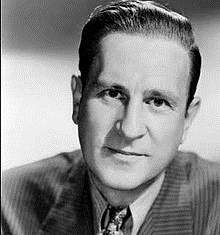
1974 – Actor/comedian Bud Abbott, the straight man of the comedy team of Abbott and Costello, died of cancer at the age of 76. Abbott and Costello are among the few non-baseball personnel to be memorialized in the Baseball Hall of Fame in Cooperstown, NY. A plaque and a gold record of their legendary “Who’s On First?” sketch have been on permanent display there since 1956, and the routine runs on an endless video loop in the exhibit area.
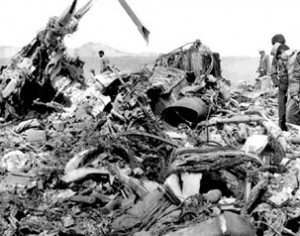
1980 – An ill-fated military operation to rescue 52 American hostages held in Tehran ended with eight U.S. servicemen dead and no hostages rescued.
With the Iran Hostage Crisis stretching into its sixth month and all diplomatic appeals to the Iranian government ending in failure, President Jimmy Carter ordered the military mission (Operation Eagle Claw) as a last ditch attempt to save the hostages. During the operation, three of eight helicopters failed, crippling the crucial airborne plans. The mission was then canceled at the staging area in Iran, but during the withdrawal one of the retreating helicopters collided with one of six C-130 transport planes, killing eight soldiers and injuring five. The next day, a somber Jimmy Carter gave a press conference in which he took full responsibility for the tragedy. The hostages were not released for another 270 days.
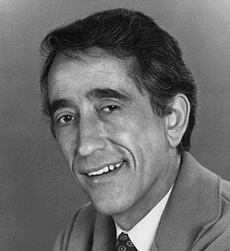
1997 – Comedian Pat Paulsen (The Smothers Brothers Comedy Hour, Pat Paulsen’s Half A Comedy Hour), perhaps best remembered for his numerous tongue-in-cheek campaigns for President of the United States, died of pneumonia and kidney failure. He was 69.
Compiled by Ray Lemire ©2017 RayLemire.com. / Streamingoldies.com. All Rights Reserved.